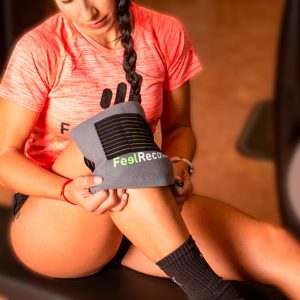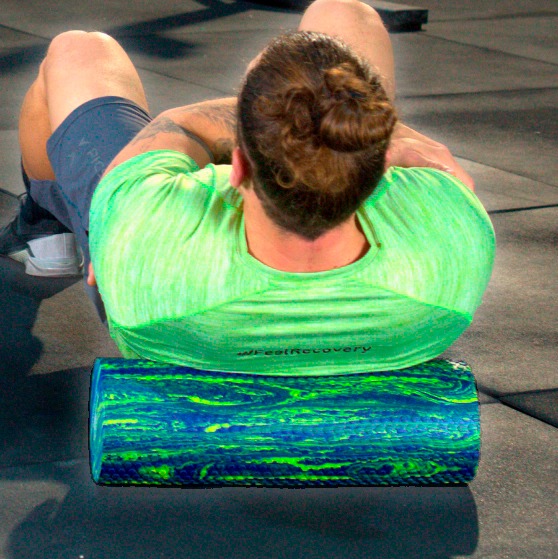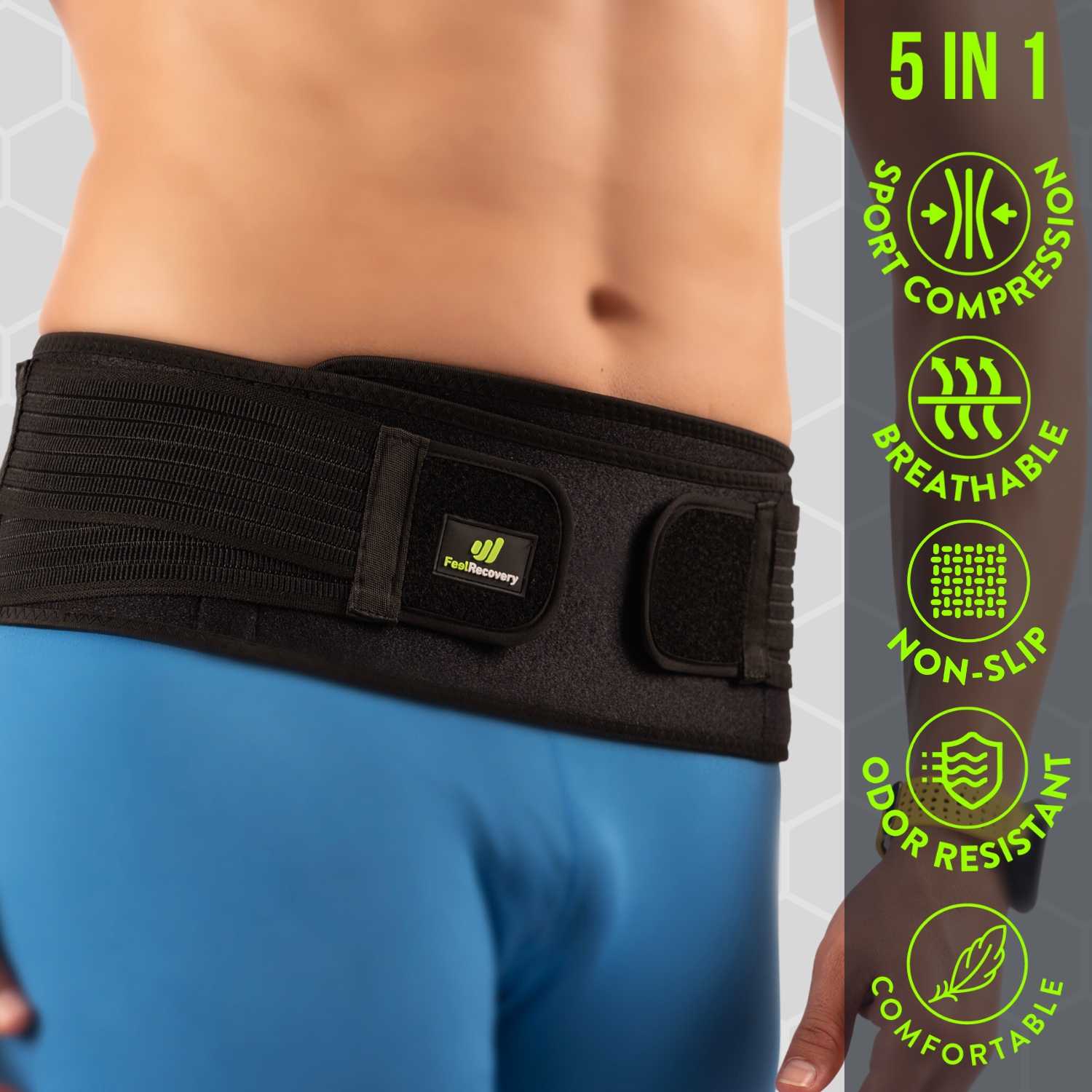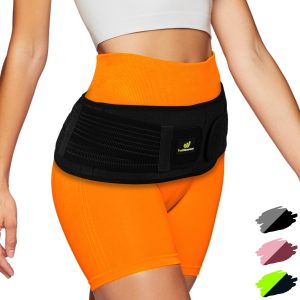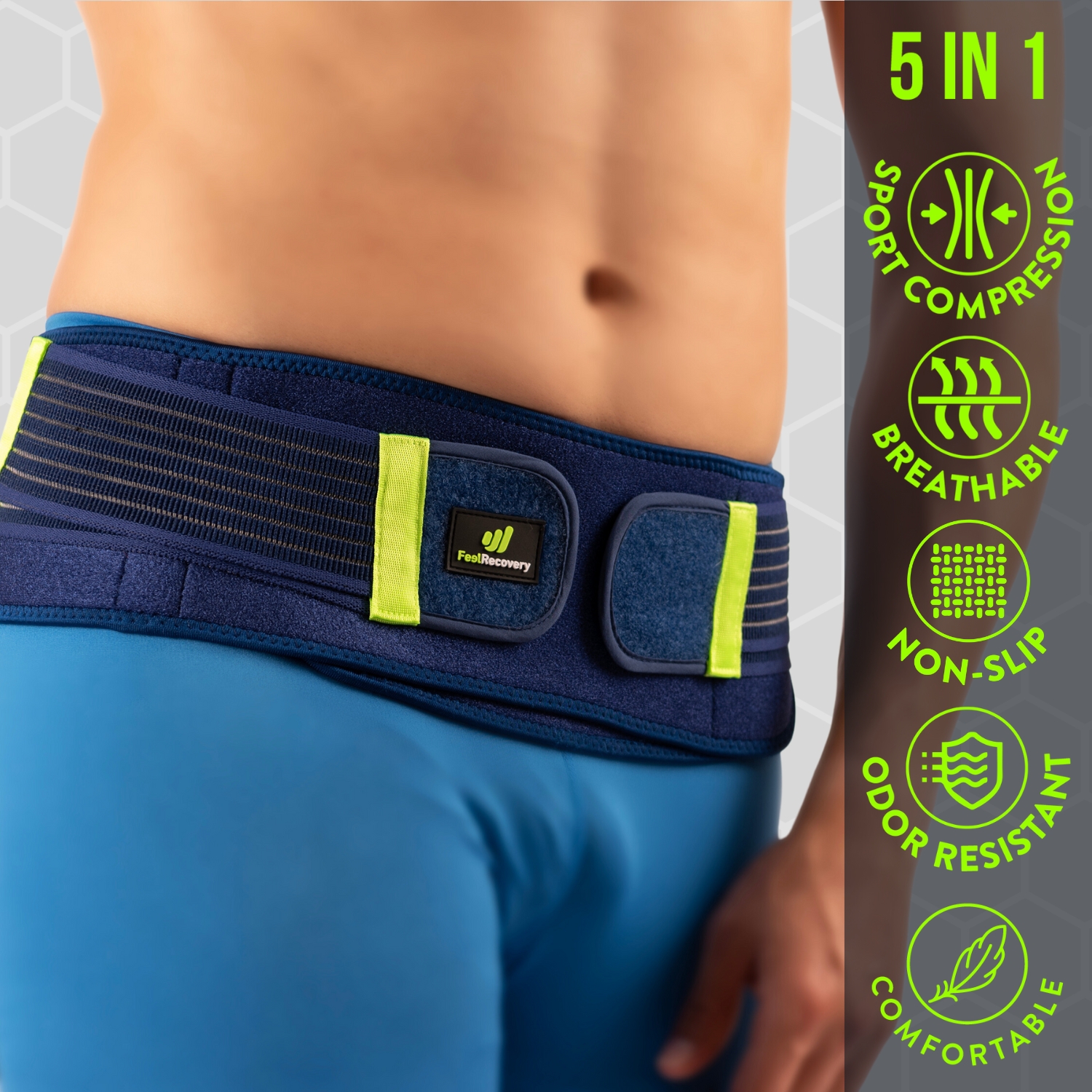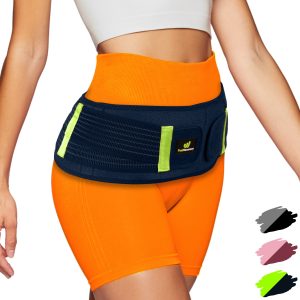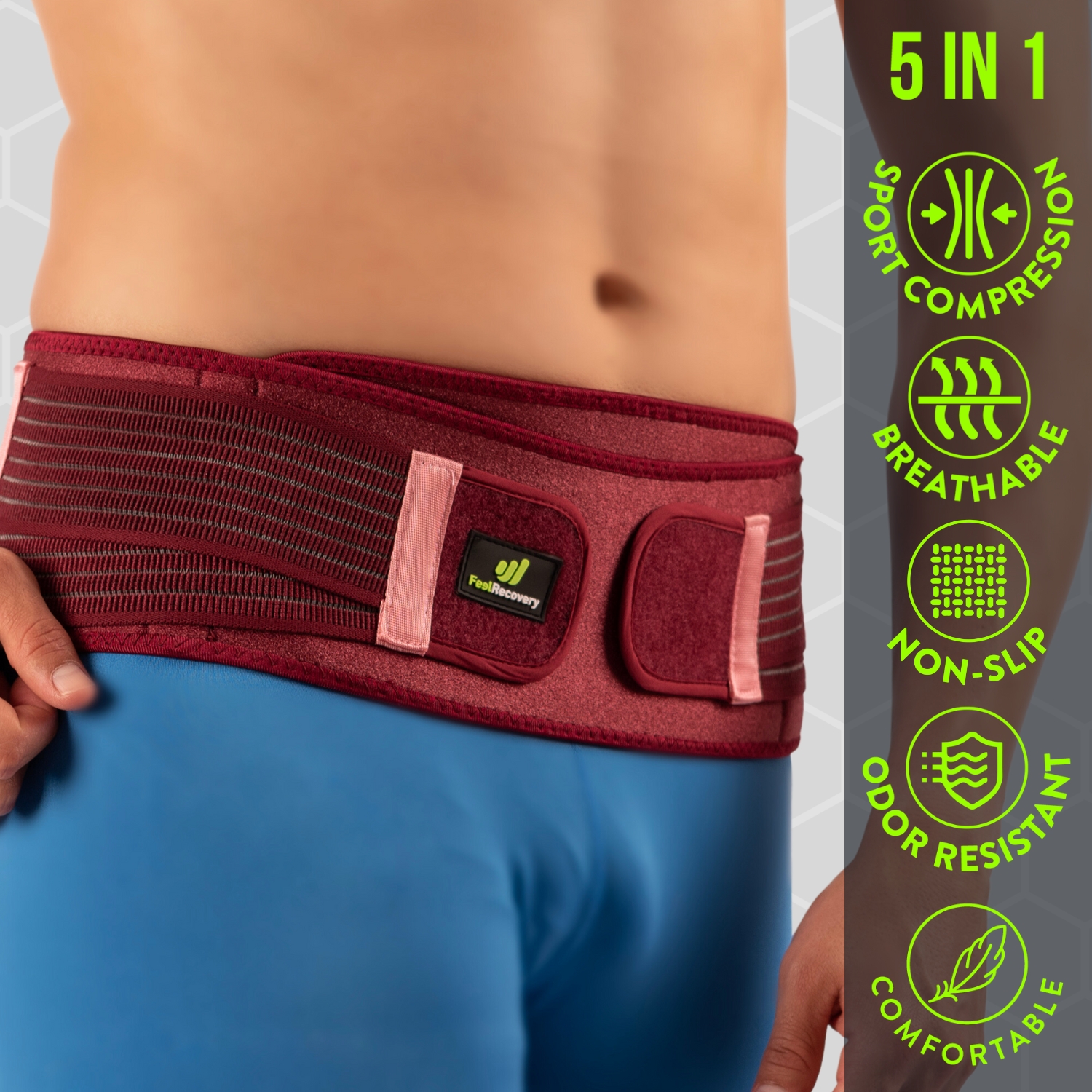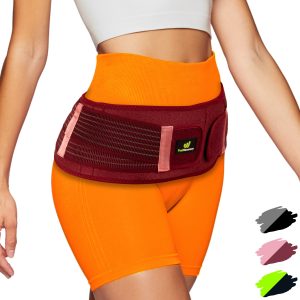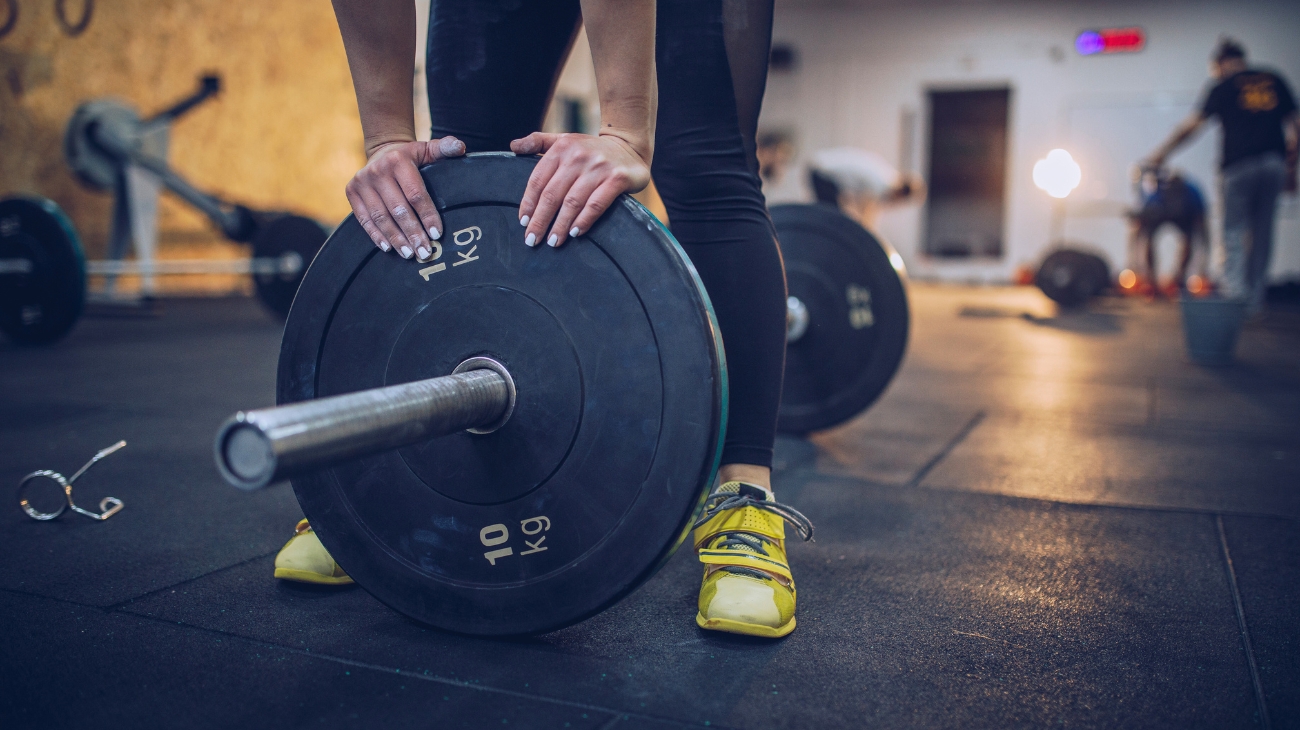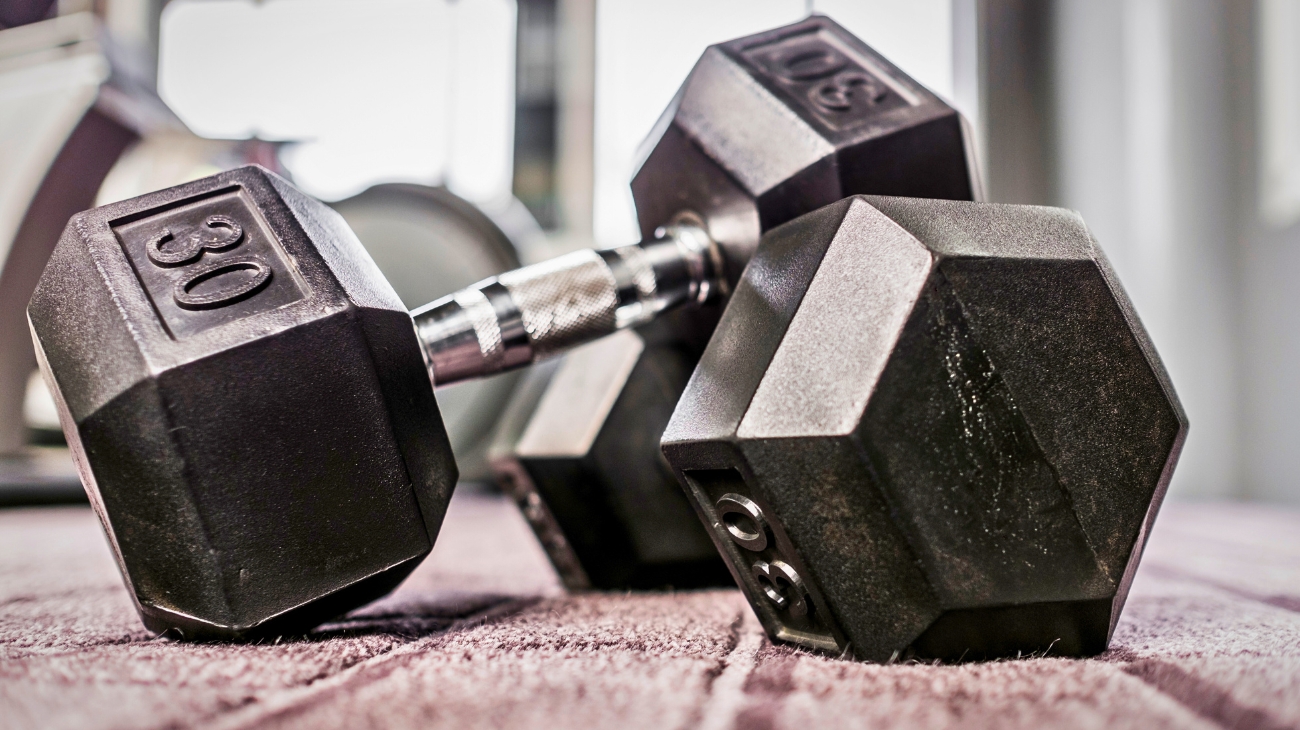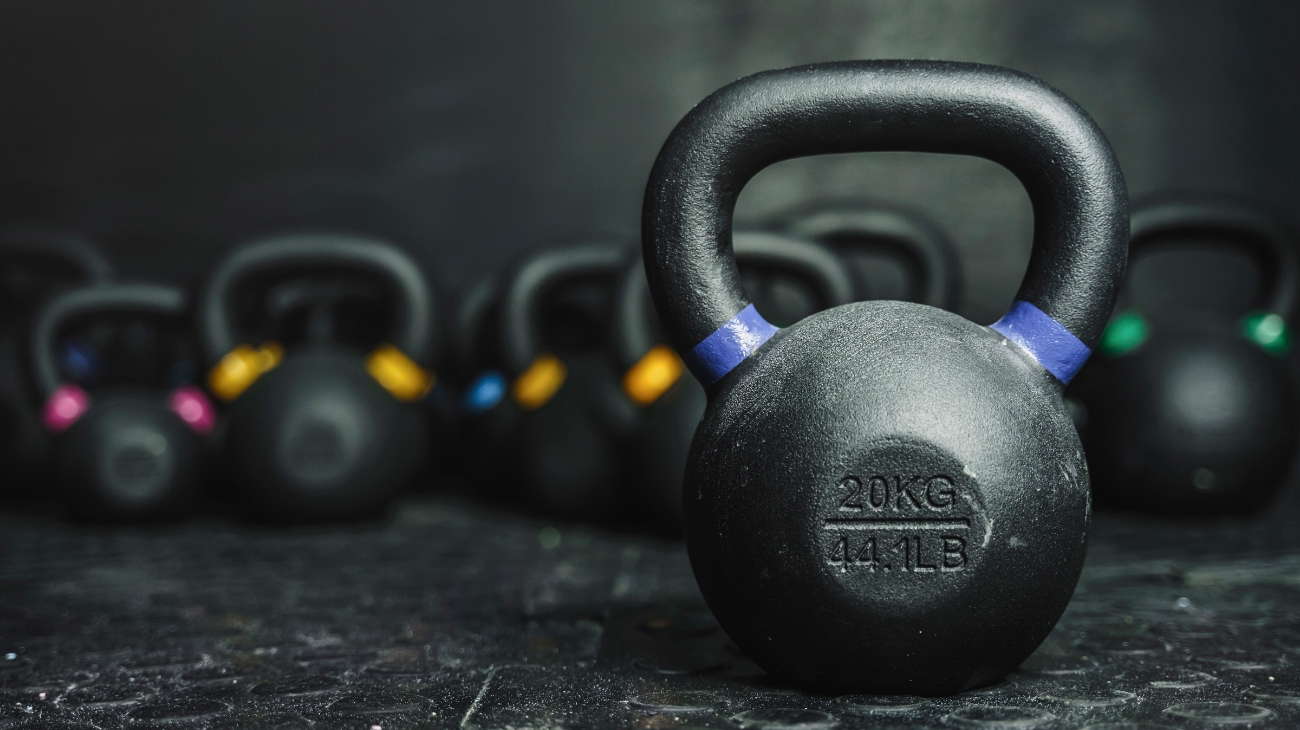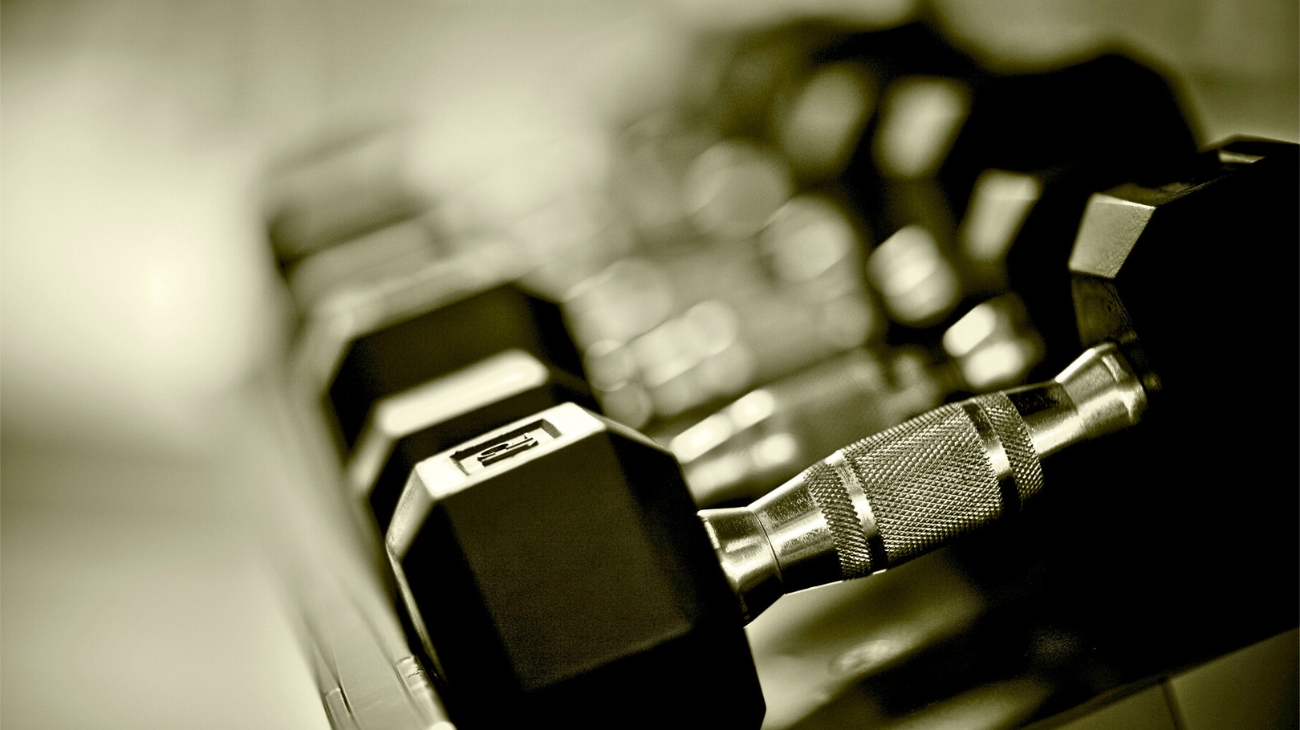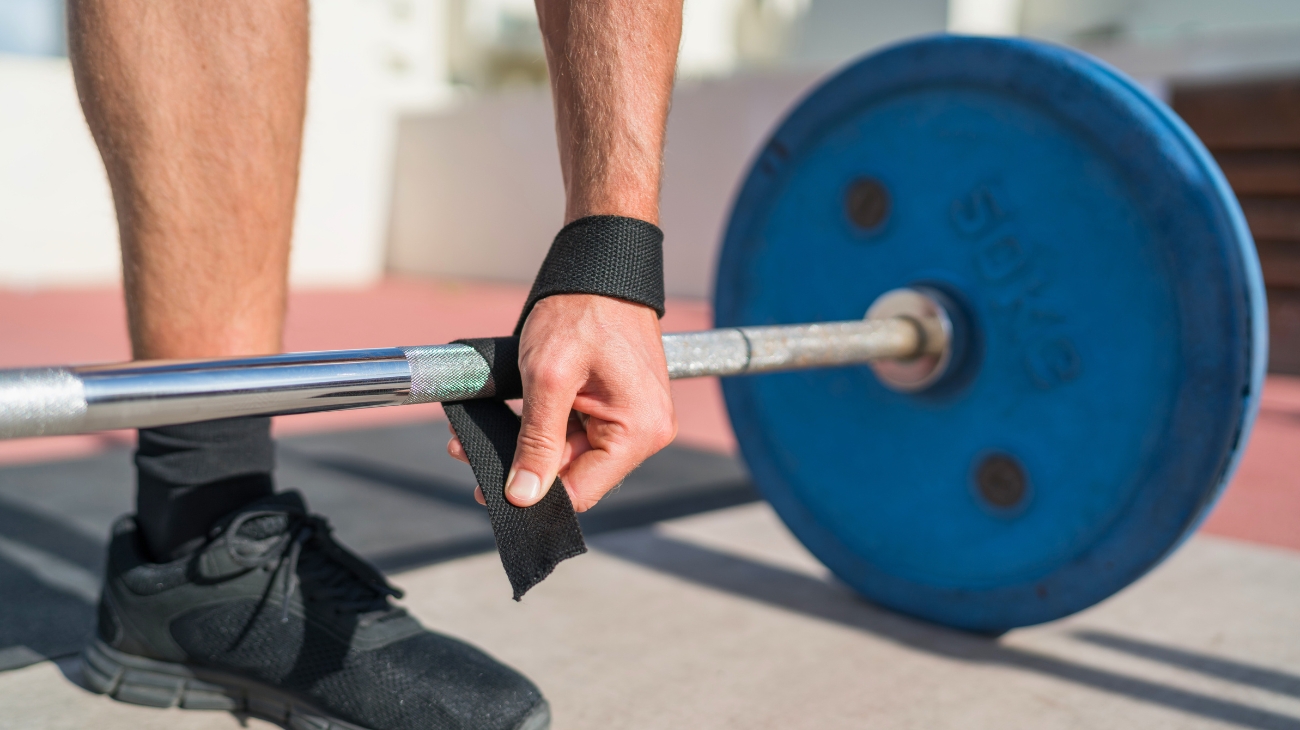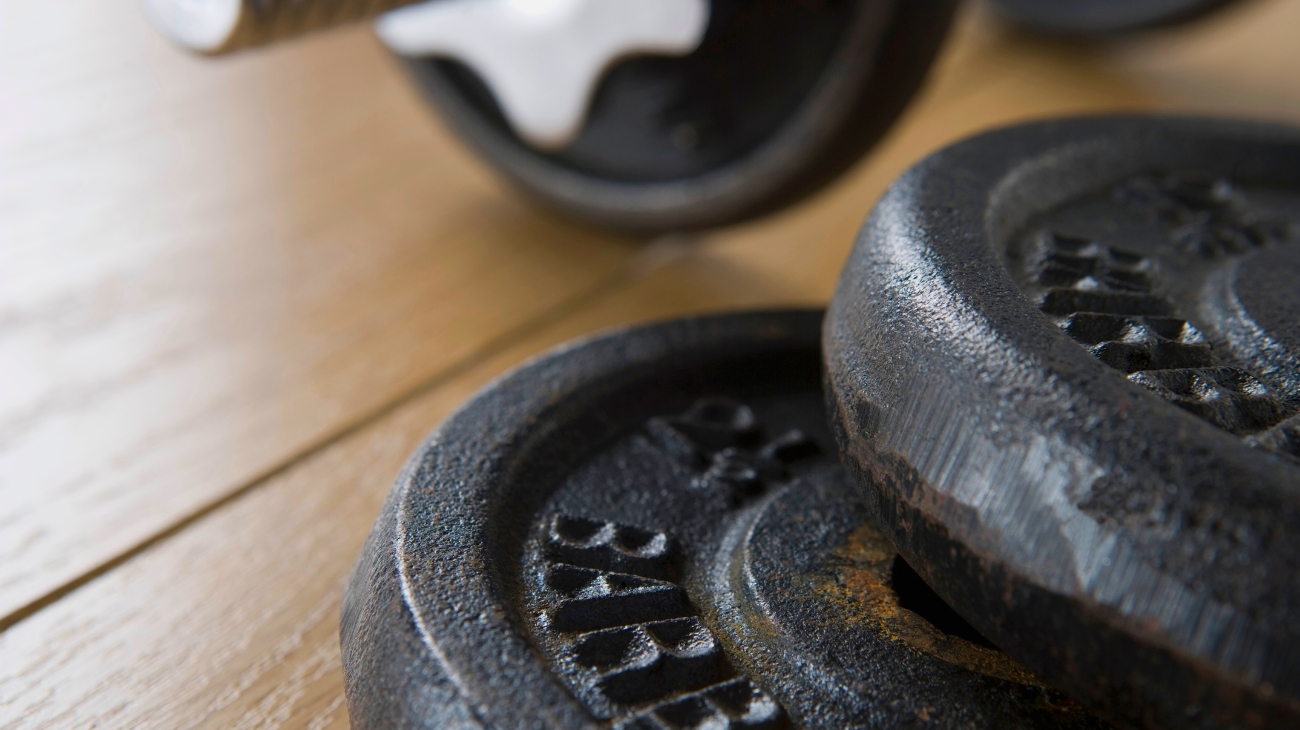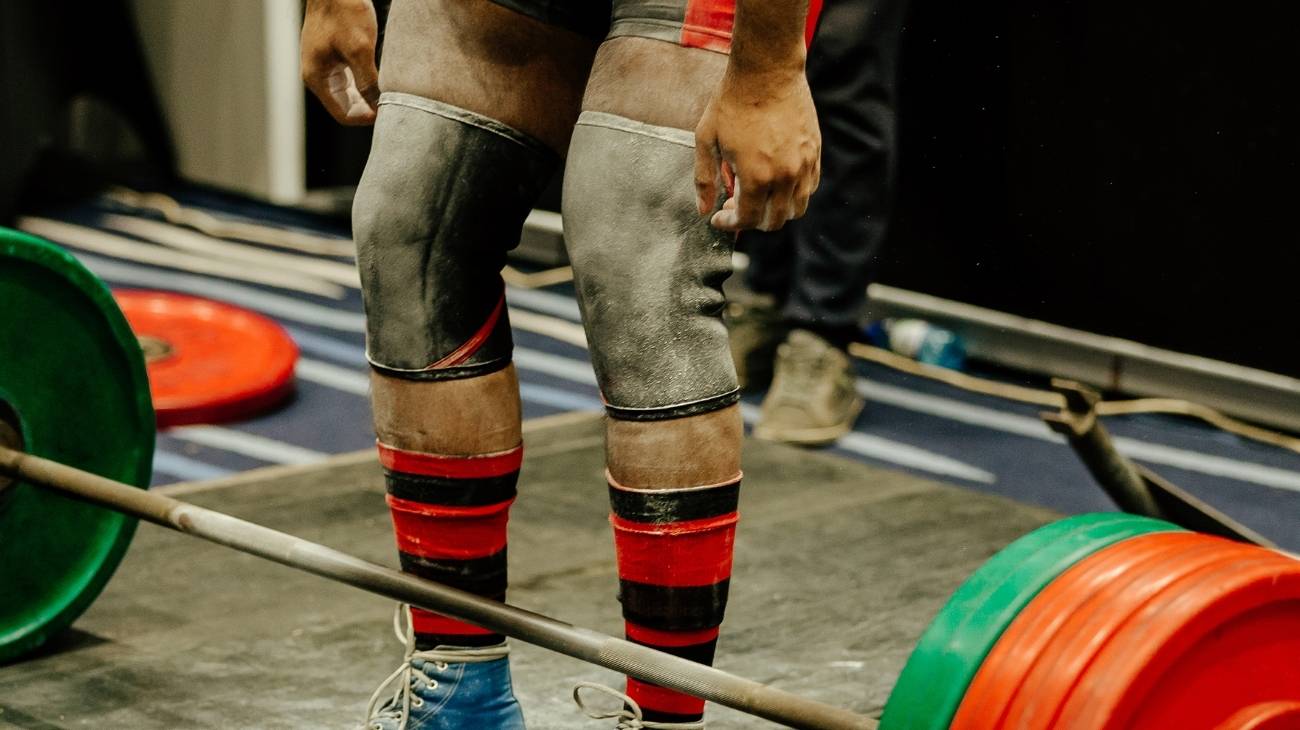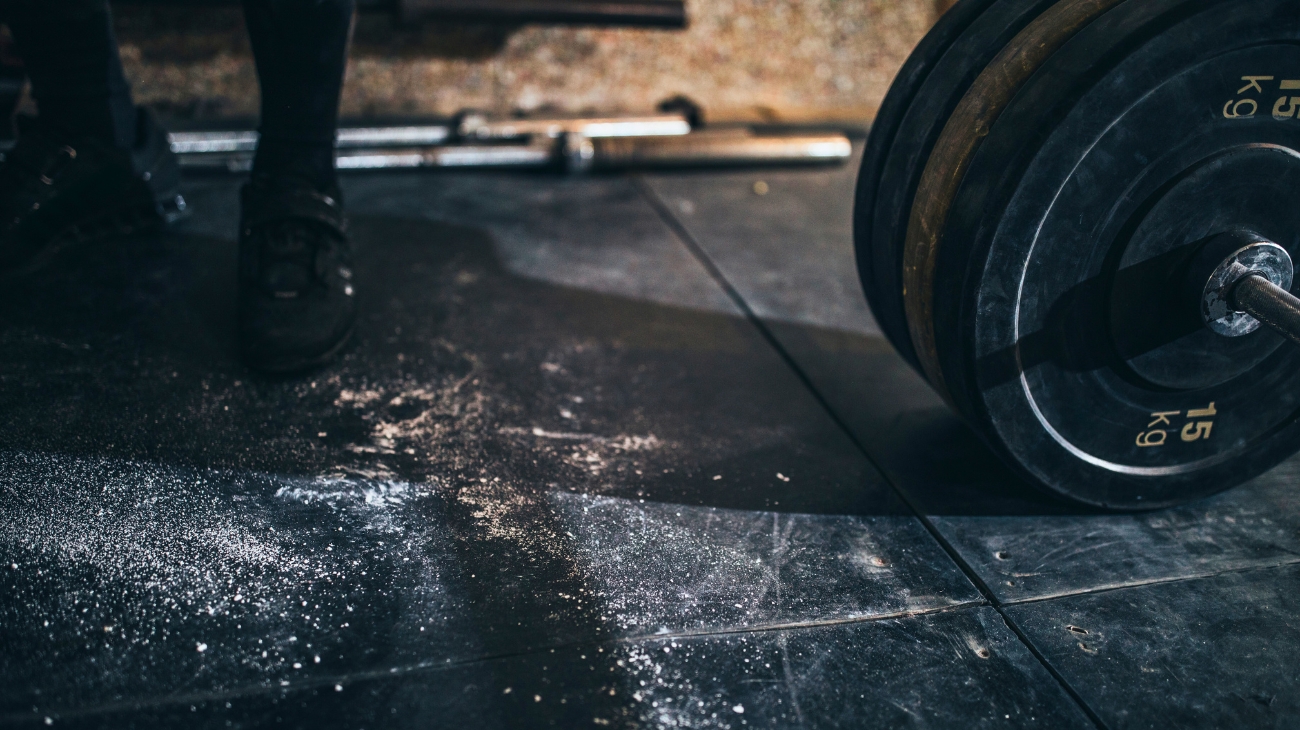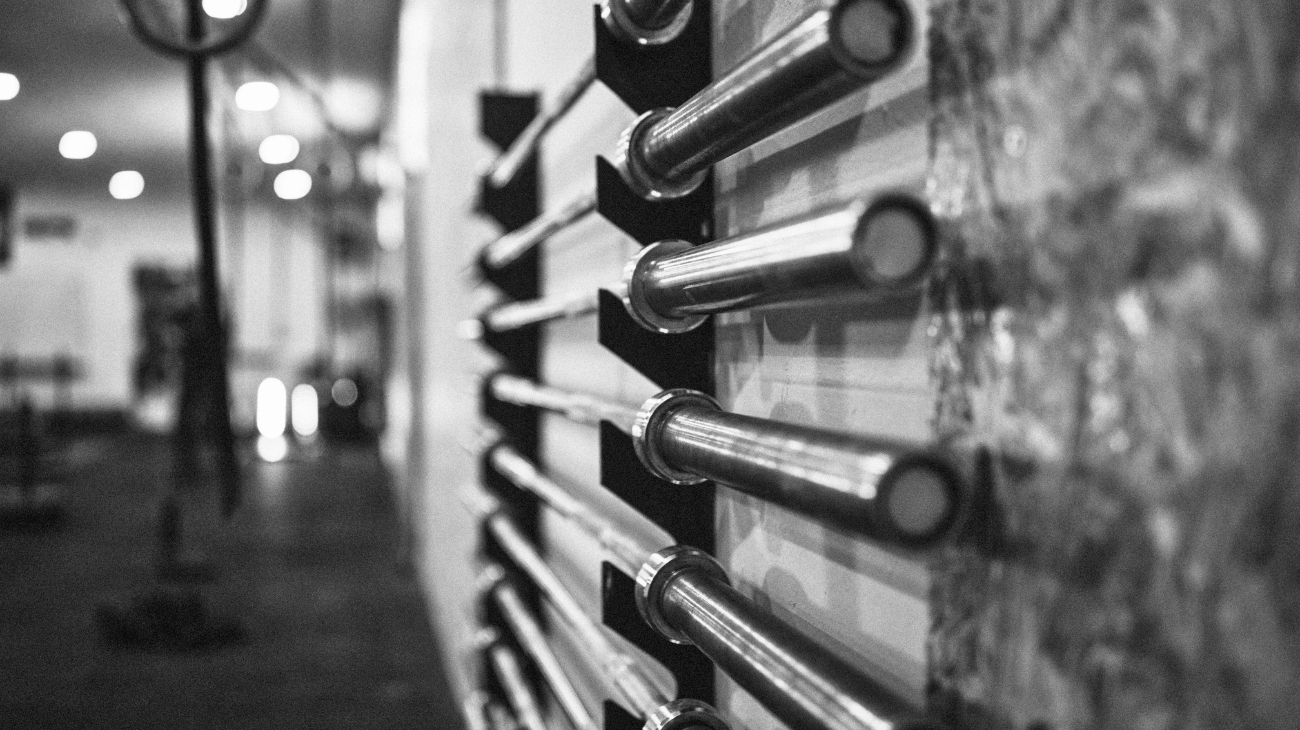In weightlifting, hip stability and mobility are crucial for executing heavy lifts safely and effectively. The hips are complex joints responsible for supporting your body weight and generating power during movements like squats, deadlifts, and lunges. However, the repetitive and high-impact nature of weightlifting often leads to injuries such as hip flexor strains, labral tears, and bursitis. Investing in high-quality hip braces and support belts can help you prevent injuries, reduce discomfort, and improve overall performance.
Hip braces are designed to provide targeted compression and stabilization for the hip joint and surrounding muscles. These braces help reduce excessive movement, which is particularly useful for weightlifters recovering from injuries like hip flexor strains or groin pulls. By limiting unwanted motion, hip braces allow you to maintain proper alignment and form during lifts, reducing the risk of further damage.
For lifters experiencing chronic hip pain or instability, hip braces offer additional support and confidence. They can be particularly beneficial during exercises like deep squats, deadlifts, and lunges, where the hips bear a significant load. The compression provided by these braces helps to reduce inflammation and improve blood circulation, promoting faster recovery and reducing muscle fatigue.
Support belts for the hips are essential tools for weightlifters looking to enhance stability and protect their lower body during heavy lifts. These belts wrap around the hips and lower back, providing firm support and helping to stabilize the pelvic region. By maintaining proper posture and alignment, support belts can help you lift heavier weights safely while minimizing the strain on your hips and lower back.
Compression sleeves for the hips offer a more flexible alternative to braces and belts. These sleeves provide consistent compression to the hip flexors, glutes, and surrounding muscles, helping to alleviate soreness and prevent injuries. Compression sleeves are ideal for weightlifters who need mild to moderate support without restricting their range of motion. They are also lightweight and easy to wear under workout clothing, making them perfect for long training sessions.
When choosing the best hip brace or support belt for weightlifting, consider factors like material, adjustability, and level of support. Look for products made from durable materials such as neoprene, elastic blends, and breathable fabrics to ensure comfort and longevity. Adjustable straps and closures allow you to customize the fit, ensuring the brace or belt stays securely in place during dynamic movements.
For athletes prone to skin sensitivity or allergies, opt for braces and belts made from hypoallergenic or moisture-wicking materials to prevent irritation. Proper fit is crucial to maximize the effectiveness of your hip support. Ensure the brace or belt provides a snug fit without being overly tight, as this can restrict circulation and hinder performance.
To get the most out of your hip brace or support belt, incorporate it into your weightlifting routine during exercises that place significant stress on the hips. Combine the use of these supports with warm-up exercises, hip mobility drills, and strength training routines to enhance stability and prevent injuries. Regularly inspect your brace or belt for signs of wear and replace it as needed to maintain optimal support.
By investing in high-quality hip braces, support belts, and compression sleeves, weightlifters can protect their hips, improve performance, and reduce recovery time. These essential tools help you lift with confidence, knowing your hips are well-supported and secure.
FAQ: Frequently Asked Questions
What are the benefits of using hip braces for weightlifting?
Hip braces provide targeted compression, stability, and support to prevent injuries like hip flexor strains and labral tears. They help maintain proper alignment and reduce pain during heavy lifts.
How do I choose the right hip support belt for weightlifting?
Consider the type of injury or support needed. For instability, choose a support belt with firm stabilization. For mild support, opt for a compression sleeve.
Can compression sleeves help with hip pain during weightlifting?
Yes, compression sleeves reduce inflammation, improve blood flow, and alleviate muscle soreness, making them ideal for preventing and managing hip pain.
Are hip support belts comfortable to wear during workouts?
Yes, most support belts feature adjustable straps and breathable materials for comfort and flexibility during weightlifting exercises.
How should I care for my hip brace to extend its life?
Hand wash with mild soap and cold water, then air dry. Avoid using heat or harsh chemicals to maintain elasticity and durability.


